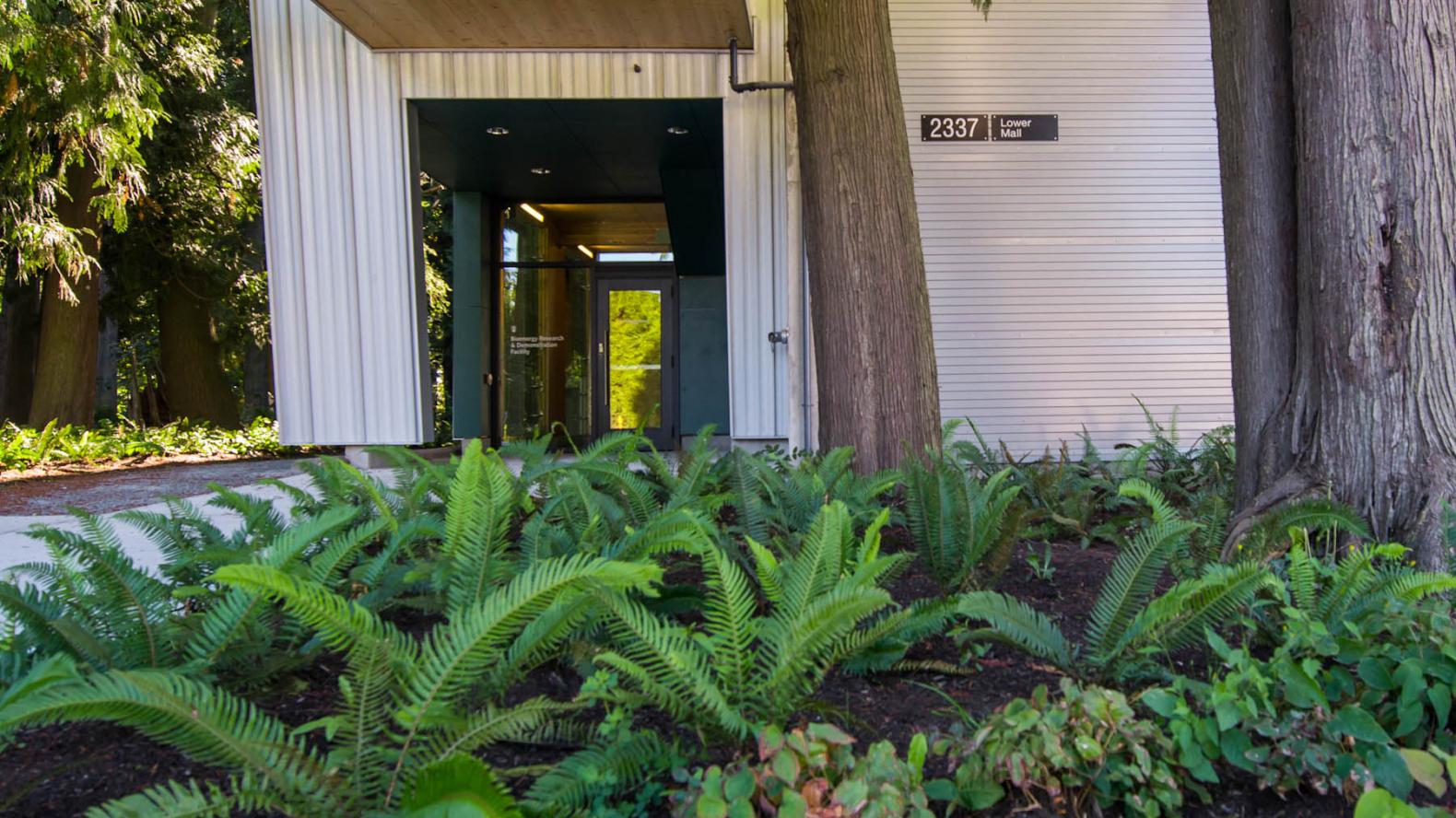
The University of British Columbia today unveiled a bold new climate action plan to accelerate emissions reductions and achieve net-zero emissions by 2035 at its Vancouver campus—15 years ahead of the previous target date.
To achieve this goal, UBC will expand its district heating system, make campus buildings more efficient, improve waste management and promote sustainable modes of transportation, among other measures.
The university’s Climate Action Plan 2030 (CAP 2030) builds on the success of two previous climate action plans. It also incorporates principles recently outlined in UBC’s 2019 declaration on the climate emergency and its climate emergency task force report.
“We have made significant progress on reducing greenhouse gases generated through campus operations, but there’s still more work to do given the urgency of our climate crisis,” says UBC President and Vice-Chancellor Prof. Santa J. Ono (he/him). “CAP2030 builds an accelerated roadmap for further emissions reductions – allowing UBC to contribute further to the goal of capping global warming at 1.5°C, which was set in the Paris Agreement.”
Clean energy, smart transportation
UBC has reduced its greenhouse gas emissions by approximately 30 per cent since 2007. The new plan aims to get to net zero faster through a combination of measures.
The Bio-energy Research and Demonstration Facility, which burns clean wood waste from outside sources to heat buildings across the campus, is undergoing a $27.4 million expansion that when complete will allow it to heat more buildings – further reducing reliance on non-renewable energy sources. Ultimately, the plant is projected to help reduce total emissions by up to 60 per cent compared to 2007 levels.
And within the next decade, 100 per cent of the district energy used to heat campus buildings is projected to come from such low-carbon sources.
In addition, the new climate action plan will ensure that new buildings are built using low- environmental-impact materials and operated sustainably to produce zero emissions, while existing buildings are retrofitted to use less fossil fuels.
UBC will also develop a comprehensive electric vehicle charging strategy for its campus fleet, and any new vehicles added to the fleet will be zero-emission whenever possible. To reduce emissions generated through commuting to campus, commuters will be offered incentives to use sustainable modes of transportation. Cyclists will also benefit from improved bike storage and bike lanes and expanded bike sharing programs.
Other measures listed in the plan include reducing business air travel and improving food and waste management.
Communities and leadership for climate change
The university recognizes that climate change has different impacts on different people and its climate action plan emphasizes social justice and a collective climate response.
Engagement and outreach activities to the UBC community will accelerate next year to support the changes needed to reach CAP 2030 goals – particularly those involving emissions from business air travel, commuting, food and waste.
The university has built a strong global reputation on climate action leadership. In 2019 and 2020, Times Higher Education ranked UBC as the top university globally in helping to address the climate crisis. As an agent of change for sustainability and social justice, UBC has also worked to elevate the issue across the global university network, including through the University Climate Change Coalition (UC3) and the U7+ Alliance.
“At a time when urgent action is needed, UBC’s approach can serve as a model of what can be achieved when an entire organization and its community is empowered to take steps to tackle climate change,” says Prof. Ono. “Through our collective actions we respond to the challenge of the climate crisis, creating solutions that can drive change locally as well as globally.”
CAP 2030 Highlights
- New buildings across campus will be built to zero-emissions standards and key existing buildings will be identified to be retrofitted with low-carbon energy systems; fossil fuel equipment will be eliminated;
- Commit to only purchasing new vehicles that are zero emissions where feasible; continue to reduce fleet GHG emissions through the use of electric vehicles (EV) and vehicle sharing between departments; develop comprehensive EV charging strategy;
- Continue to advocate strongly and plan for a rapid transit link from Arbutus to UBC;
- Improve the cycling experience through improved bike storage and bike lanes; expansion of bike sharing programs and future e-bike sharing programs in partnership with the City of Vancouver;
- Reduce emissions generated through commuting to campus by discouraging single occupancy car trips by limiting parking supply, calibrating parking permits packages to incentivize commuters to use sustainable modes of transportation;
- Reduce business air travel emissions by 50 per cent by 2030 by generating awareness and leveraging virtual solutions; study air travel patterns and alternatives between Vancouver and Okanagan campuses;
- Introduce an Internal Carbon Price to encourage investment in climate-friendly systems that reduce emissions and operational carbon liabilities;
- Amend UBC Supplier Code of Conduct to reflect the university’s climate commitments; advance research initiatives to expand climate-friendly food systems; update the Zero Waste Action Plan.